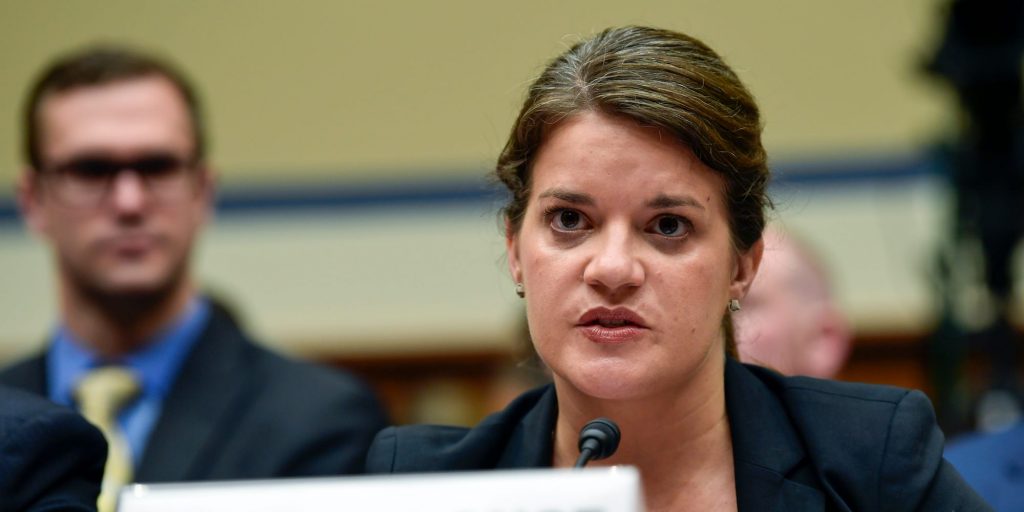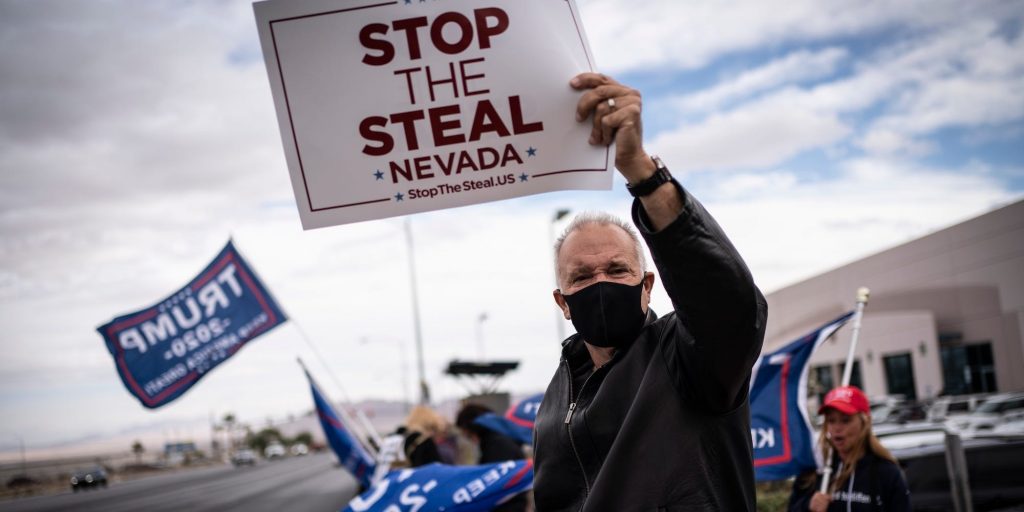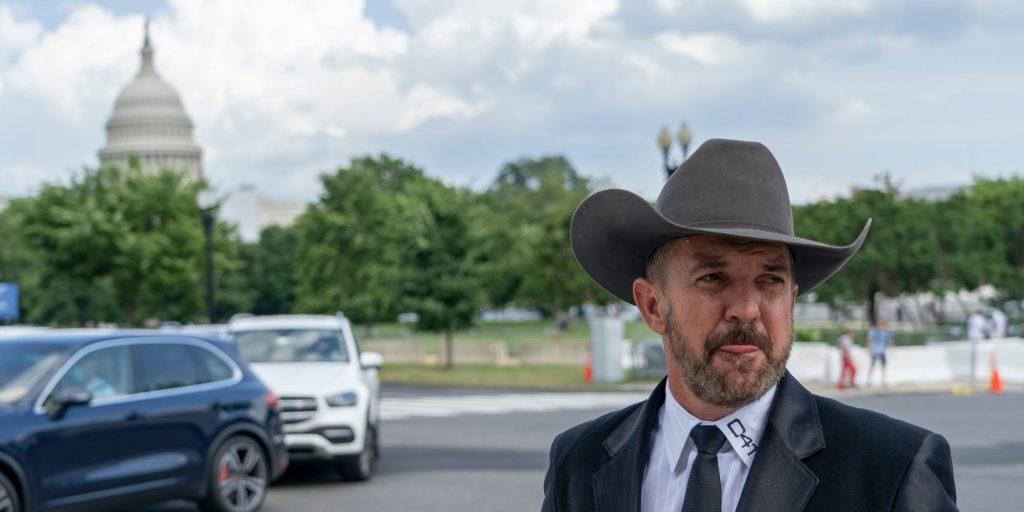- Election-skeptical county officials ultimately failed to sabotage the results of a New Mexico primary.
- A court order successfully forced the commission to comply, a signal of the court system's resilience.
- But the episode previewed further potential sabotage attempts and unrest in November.
Retired federal judge J. Michael Luttig issued a stark warning in Thursday's hearing of the House January 6 committee that former President Donald Trump and his allies are "executing the blueprint" to "succeed in 2024 where they failed in 2020" in sabotaging and even overturning the election.
But America doesn't have until 2024 to wait. As the conservative former judge was testifying, a concrete example of the more immediate threats to the 2022 election was unfolding at the local level in a small county in southern New Mexico.
Before a court stepped in, the three-member Otero County commission initially refused to certify the results of New Mexico's June 7 primaries not based on any indication of problems with the election itself or any challenges from candidates, but as a result of general distrust and discomfort with Dominion Voting Systems machines.
The split-screen of the January 6 hearings and the New Mexico election episode shows that American democracy ultimately held in 2020, despite fundamental cracks in its foundation. And, in 2022, the threat to election results is also coming from within.
The election denial movement pushed by Trump and his allies that spurred so many to attack the Capitol on January 6 has now fanned out to county commissions, town halls, and polling places around the country, presenting wholly novel burdens on election officials and new threats to the health of American democracy.
Trump-backed candidates won Republican party nominations for crucial statewide posts responsible for election administration in Michigan, Pennsylvania, and Nevada. And conservative activists are intensely recruiting motivated election skeptics to serve as election workers and local officials responsible for certifying results.
Indeed, one of the Otero County commissioners who held out against certifying the results, Couy Griffin, is a leader of "Cowboys for Trump" who was convicted of misdemeanor trespassing at the Capitol during the January 6 insurrection.
"This is new territory for us, and relying upon the courts will be necessary," David Becker, executive director of the Center for Election Innovation and Research, said on Thursday. "But that doesn't solve the problem of the period of time in between an election and when someone takes office and a court might rule, where that kind of chaos is leveraged to create an environment ripe for political violence."
"We could see not one January 6 in one place: we could see a lot of little, or maybe not so little, violent insurrections in a lot of different places — in a worst-case scenario," he added.

Courts may save the day in this 'new territory,' but can't prevent unrest and 'chaos'
New Mexico's Secretary of State Maggie Toulouse Oliver went to court almost immediately, asking the state supreme court to issue a writ of mandamus compelling the commissioners to certify the results. After the New Mexico Supreme Court sided with the state and ordered the commission to certify the primary, the commissioners backed down and voted 2-1 to sign off on the results on Friday afternoon.
"My vote to remain a no isn't based on any evidence," Griffin, the sole dissenter, said via phone from Washington, DC where, earlier that day, he was sentenced for his role in the Capitol riots. "It's not based on any facts, it's only based on my gut feeling and my own intuition, and that's all I need."
The New Mexico episode was a success story and an endorsement of writs of mandamus as a well-established mechanism in the legal system to bat down similar election sabotage, Derek Muller, a professor at Iowa Law School, argued in a post for Election Law Blog.
But an Otero County-like episode playing out in dozens of places around the country in November could spur chaos and further shake the stability of American democracy.

Local election deniers could impose a "tremendous burden"
Becker warned that local election denial could become the new normal in the coming months and years.
"This is a very rare circumstance right now, but as we see more election deniers running for office, and see election deniers convince some county commissions and others about these lies, this might become more pervasive," Becker told Insider, adding that such a scenario playing out in multiple places after the general election in November could pose "a tremendous burden" on the legal system.
Muller argued that the outcome in New Mexico is an encouraging sign of resilience in the legal system and the strong deterrent powers of writs of mandamus, which can bring sanctions, fines, and even removal from office for defiant officials.
Muller has also posed, however, that the ability of state officials to swiftly seek writs of mandamus may present a "moral hazard." Local officials could be perversely incentivized to refuse to certify election results to make a point about the 2020 election or Dominion machines if they know "there's a judicial backstop that would do the job for them," Muller wrote.
"I don't think Derek is wrong…but what other option is there?" Becker told Insider, later adding: "If it does incentivize bad actors, I don't know that there's an alternative."
The court system may ultimately play a key role in stopping rogue local officials from sabotaging election results in November, as they did in New Mexico. But the continued attacks on the integrity of the democratic process, even if ultimately unsuccessful, could be a catalyst for chaos and unrest furthering the vicious cycle sparked by January 6.
"I'm fairly confident in the courts," Becker said, "but I'm worried about the interim between a denial of certification when a court might be able to rule and the chaos that might ensue."

